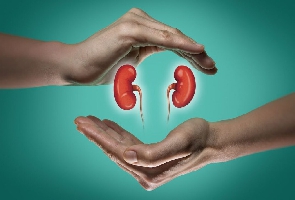 It is recommended that those with renal diseases reduce their intake of sweets
It is recommended that those with renal diseases reduce their intake of sweets
Many people lack knowledge of the warning signs of kidney ailments.
These symptoms are your body's method of warning you that your kidneys are damaged or failing and may soon quit operating.
According to Healthline, maintaining optimal kidney function is essential to your overall health and well-being, and as such, deserves your undivided attention at all times.
However, several warning signs can help you determine if your kidneys are indeed unwell and need medical attention.
The three signs that your kidneys aren't working as they should be, and the quick steps you should take in response, are defined by Cleveland Clinic and will be discussed in this article.
If you're experiencing any of these symptoms, you must consult a doctor right once.
The first thing to note is that naturally thick lower extremities like the abdomen are not uncommon.
However, if your legs and ankles swell up and hurt, it's a symptom that your kidneys aren't functioning properly. This is a symptom of impaired renal function.
Additionally, it can cause a decrease in lung capacity, which in turn leads to shallower breathing and an overall feeling of weariness.
Your limb length and ankle width are both typical for someone of your build.
When one or both of your kidneys aren't functioning properly, it might cause frequent convulsions and the feeling of having a heavy weight pushing down on your chest.
Even a small amount of urine can cause dizziness, fainting, and the urge to vomit or urinate through the mouth, as reported by WebMD. It's also possible that you'll feel compelled to spit out liquids.
Nausea is the medical term for this issue, and vomiting is the term for what happens afterwards.
Any of these three symptoms should prompt a trip to the doctor, and you shouldn't delay.
To be evaluated, have a kidney function test performed, and start treatment as soon as possible, you should contact the local emergency services and have someone drive you to the nearest hospital or your doctor's residence as soon as possible.
It is recommended that those with renal diseases reduce their intake of sweets, red meat, and alcohol.
Your doctor may recommend a special diet or a list of foods, like certain vegetables and fruits, to aid in the recovery of your kidneys.